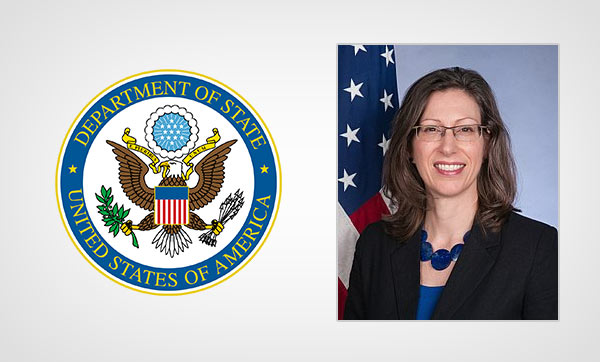US Ambassador cautions Sri Lanka’s China-backed Colombo Port City from turning into money-laundering haven

US Ambassador to Sri Lanka and Maldives, Alaina Teplitz on Saturday warned Sri Lanka of unintended consequences of ‘nefarious actors’ who may try to misuse a China-backed Colombo Port City’s easy business rules as a permissive money laundering haven amid concerns of tax leaks.
Sri Lanka has unveiled draft legislation for a Colombo Port City Commission which allows for sweeping tax breaks, tax-free salaries and to be an offshore financial centre.
“Any legislation relating to the port city has to be considered very carefully for its economic impact,” Teplitz told reporters in Colombo in an online discussion.
“And of course among those un-intended consequences could be creating a haven for money launderers and other sorts of nefarious actors to take advantage of what was perceived as a permissive business environment for activities that would actually be illegal.”
The agency running the Port City would have extensive powers to exempt businesses from taxes of up to 40 years, though it is not a tax haven in the traditional sense.
Sri Lanka’s tax revenues have plunged in 2020, raising concerns over debt and the fiscal path, credit downgrades and the ability of the government to provide vital public services to the people, while managing loss-making state enterprises.
“I do recognize that the government of Sri Lanka wants to take advantage of the investment that has already been made in creating the Port City foundation, but the legislation really needs to be reflected to address these challenges and to be careful of what it might be to open doors to bad practice and unfair competition for the rest of the country,” said Teplitz.
Teplitz said an idea by US Treasury Secretary Janet Yellen to have a global single corporate tax was just a proposal with no immediate impact but Sri Lanka should think about tax concessions in its own interests.
Sri Lanka is under the worst import controls since the 1970s using the 1969 law, though exchange controls are less draconian.
Sri Lanka’s economy was progressively closed with an import control law being enacted in 1969 as money printing pressured the rupee, which worsened after the break-up of the Bretton Woods in 1971, as then-Federal Reserve Chief Arthur Burns printed money to target an output gap, forcing dollar to be floated.
Sri Lanka’s attempts at creating numbered accounts as part of creating Non-resident foreign currency accounts, after re-opening the economy in 1978 was also resisted by Western nations.
Citizens are also allowed to hold up to 15,000 US dollars as well as unlimited amounts in dollar accounts outside to protect their savings from monetary expropriation, in relaxation of legal tender laws.
(ANI)

Latest Headlines in Sri Lanka
- Tuition teacher under investigation for student assault ignores NCPA summons March 12, 2025
- Sri Lanka maintains stance on Adani, open to investment March 12, 2025
- Doctors strike over delay in arrest of sexual assault suspect March 12, 2025
- Sri Lanka to introduce freelancer registration system for banking and financial benefits March 11, 2025
- Sri Lanka’s ‘Clean Sri Lanka’ school renovation project progresses with Tri-Forces support March 11, 2025


